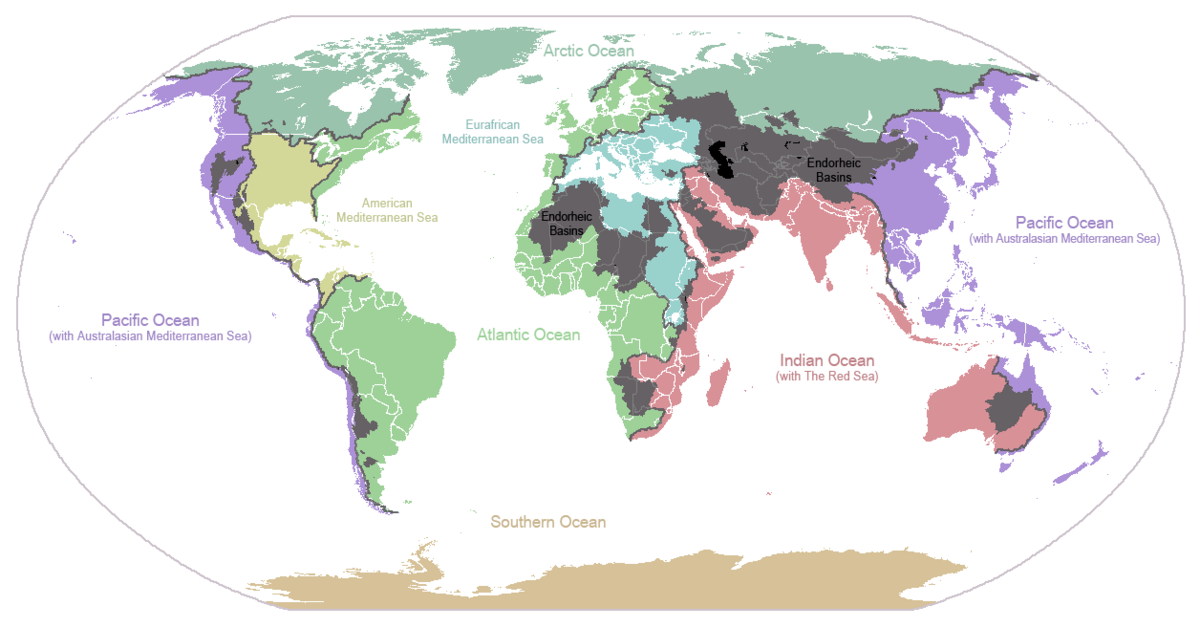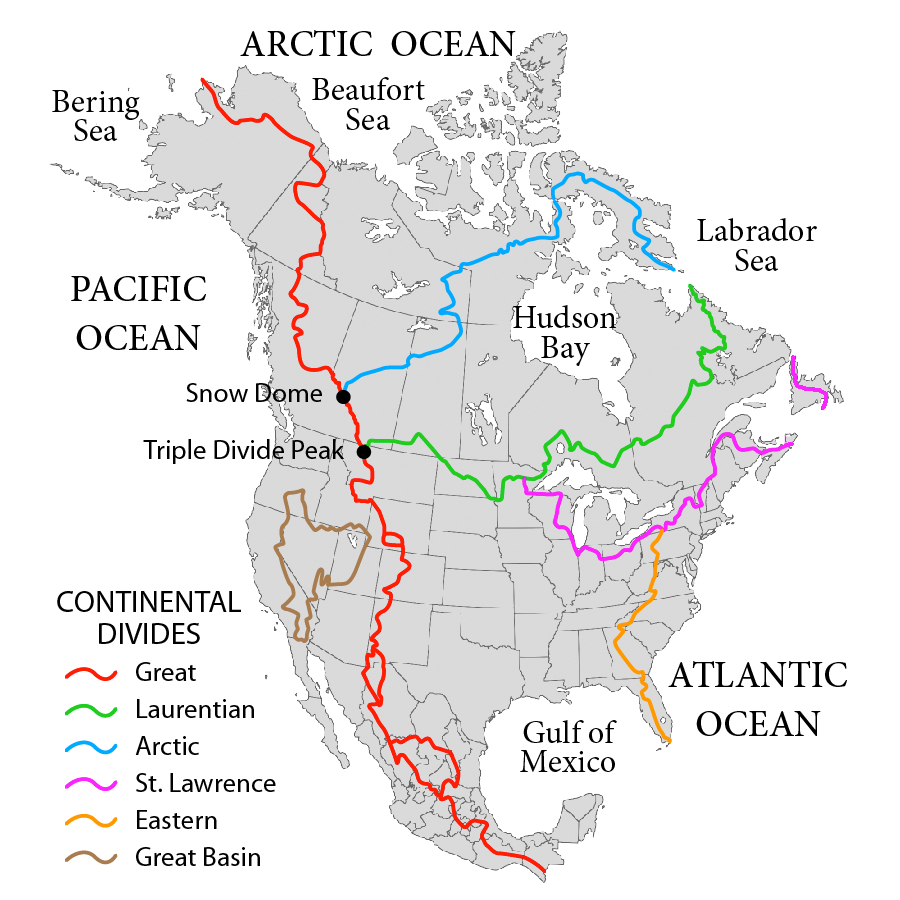Years ago I learned that the Columbia ice field was North America's triple divide point: water flowing from this ice field could drain into the Artic, the Pacific, and the Atlantic Ocean. Something I never questioned. Today I came upon this map, and was surprised to see that the triple point was actually further south, close to the USA/Canada border:
I looked it up and found about Triple Divide Peak. The article has another, more precise map:
So it appears that there are actually two triple points. That led me to search which ocean Hudson Bay belongs to... and this is where it gets tricky. Citing various sources, Wikipedia says:
Hudson Bay is often considered part of the Arctic Ocean; the International Hydrographic Organization, in its 2002 working draft of Limits of Oceans and Seas defined the Hudson Bay, with its outlet extending from 62.5 to 66.5 degrees north (just a few miles south of the Arctic Circle) as being part of the Arctic Ocean, specifically "Arctic Ocean Subdivision 9.11." Other authorities include it in the Atlantic, in part because of its greater water budget connection with that ocean.
Some sources describe Hudson Bay as a marginal sea of the Atlantic Ocean, or the Arctic Ocean.
So, my questions are: Which objective criterion could be used to settle this dispute? Considering this criterion, which ocean Hudson Bay belongs to?

